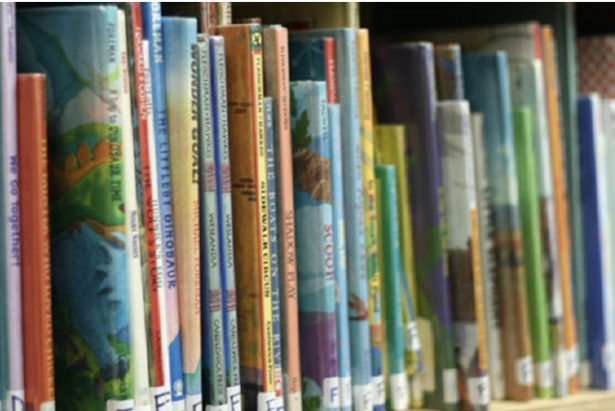From early May to late June, the Trump Administration separated children from their parents after crossing the U.S.-Mexico border. Thousands of children remain apart from their families in shelters across the country. Reunification efforts promise to be complicated—the administration appears not to know exactly how many kids are still separated from their parents, and current estimates run as high as 3,000.
Now, a D.C.-area writer has started a book drive called 2,000 Libros, its name based off original estimates about how many children were still detained, though creator Elizabeth Ballou says she knows the current numbers are higher. The project is meant to provide bilingual and Spanish-language books to minors still in government custody across the country.
“I think a lot of people will identify with it when I say that when I was a little kid, I used books to escape into another reality when things weren’t going right in my own reality,” says Ballou, a local writer who’s originally from Richmond, Va. “Children that are separated from their families are in extreme psychological distress and may not have any other ways of coping or expressing themselves.”
Ballou is working in concert with area non-profit D.C. Books to Prisons, which normally sends books to people incarcerated in the area. For now, donations can be made through this Amazon wish list or, to buy local, this Politics & Prose wish list. Ballou says she is looking to partner with physical bookstores in the D.C. area where people who already own gently used Spanish or bilingual children’s books can drop them off.
In the coming week, she says D.C. Books to Prisons will also create a channel where people can donate money. They plan to use the cash to pay for shipping costs to shelters all over the country where minor migrant children are being held.
Ballou says she’s mainly been working off this map from the Washington Post listing the facilities where migrant minors are kept, including children separated from their parents via Trump’s policy and also unaccompanied minors who crossed the border alone.
Ballou has been in contact with many of these shelters, discussing donation policies and what kinds of books are needed.
“All of the [employees at the shelters] that I’ve talked to have been doing their absolute best to funnel resources and supplies to their centers, but a lot of them do need books, especially bilingual books,” Ballou says. “That’s the biggest request I’ve been getting, so that kids with shaky English can read the English text on one page and the Spanish text on the other.”
2,000 Libros is requesting books aimed at kids between the ages of 8 and 14 years old. The drive started in early July and just received its first shipment of about 40-50 books, Ballou says. They’ve been earmarking things as they come in based on what specific shelters have requested in their phone conversations with Ballou. Once they’ve gathered enough books, she says they’ll start making bulk shipments.
The initiative’s info page offers a concise summary of the philosophy behind Ballou’s efforts: “Books are a small way of showing these children and teens that many other worlds exist. Hope, love, happiness, and wonder are available at the turn of a page.”


Spread the word